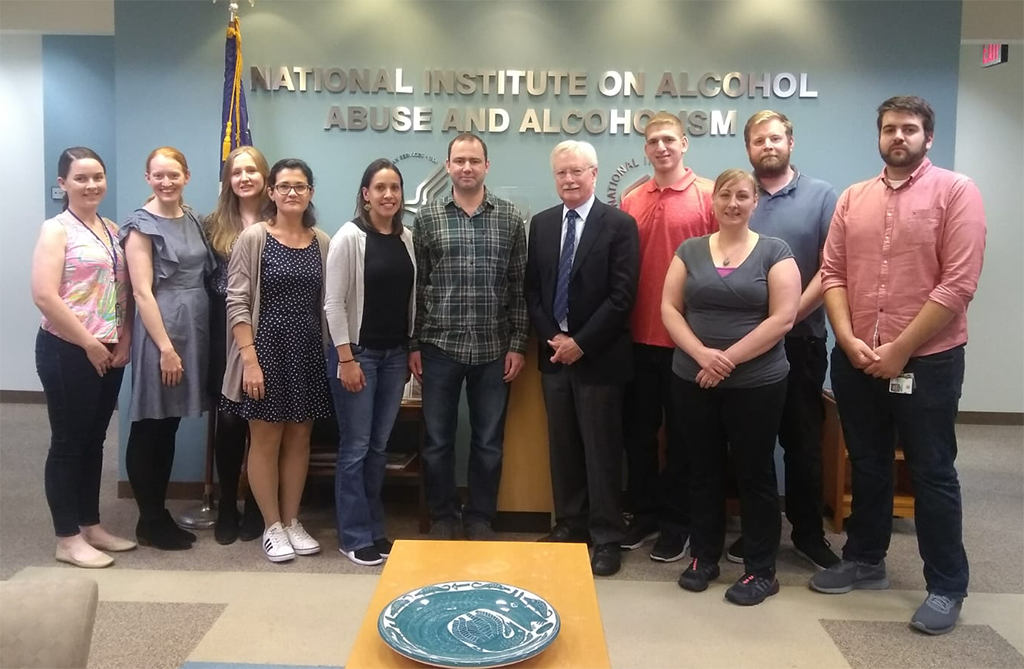A division of the Integrative Neuroscience Branch
Section Chief
Contact
Location:
Biomedical Research Center
251 Bayview Boulevard
Suite 200, Room 08A727
Baltimore, MD 21224
Phone: 443-740-2869
Email: george.koob@nih.gov
About the Lab
Projects include:
- Conduct research towards understanding the neurobiological bases for altered motivational states associated with drug addiction at the neurocircuitry, cellular and molecular level and using these studies as a heuristic approach to the study of emotions.
- Conduct research on the relationship between pain and emotional systems in the context of the same neurocircuitry. The neurocircuitry under study involves specific elements of the basal forebrain involving the elements of the extended amygdala: central nucleus of the amygdala, bed nucleus of the stria terminalis and elements of the ventral striatum including the shell and core of the nucleus accumbens.
- Conduct research on the identification of molecular factors that load such circuits and neurotransmitter system function, on identification of cellular interactions between such brain stress systems, and on identification of the role of outputs such as the hypothalamus in expressing such negative emotional states. Such research will provide key information not only about the neurobiology of addiction, pain and stress but also key information about the neurobiology of motivational systems in general.
- The ultimate goal of the section is to understand how cellular and molecular changes produce changes in particular neurocircuits to convey negative emotional states that contribute to the motivation to seek drugs.


